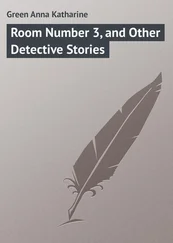‘But what?’
‘Don’t wait up.’
What did that mean?
‘Go on,’ he said. ‘It’s cold. The girls are waiting.’ To puncture the mood and effect a disengagement he added, ‘I can see down your top when you lean like that.’
It was a fifteen-year-old bottle, to be treated with respect, so they sipped slowly, both acknowledging how they couldn’t cane it like they’d used to. And there was the shepherd’s pie to mop it up. It was a very good shepherd’s pie. Perhaps he praised it too much, but Alec had simply said, waxing Caledonian, that short of a decent haggis there was no finer accompaniment to a good whisky. Decent haggis. That word again.
All the same, after a certain point — he could recognise the symptoms — he knew he should start to put his hand over his glass or ask for a coffee. And he really didn’t want, now, to have that moment when Alec would say, ‘There’s a spare bed upstairs, mon. No problem.’ He didn’t even want, now, to be around when Sue returned. Don’t wait up.
The point should come, before Alec launched off on some other topic, when he should say, ‘Look, if you don’t mind, I’ll head back now.’ And make whatever feeble excuses. He’d already told Alec that, strictly speaking, he was under doctor’s orders. It wasn’t true, though he’d had a fairly schoolmasterly doctor’s warning.
On the coffee table were two abandoned plates and the dish, with an encrusted serving spoon, that had contained the shepherd’s pie. They’d eaten like slobs, on their laps. He wondered how the table was looking at Hathaway’s with Christine and Anita.
He should make a move before he lost his power of decision — he was near that — and, yes, definitely before Sue returned. He needed a pee, so he went upstairs, resolving that when he came down and while still on his feet he’d mouth his garbled adieus. It had gone eleven. No, he was okay to drive. He had work to do tomorrow.
But he made the mistake, when he came out of the bathroom, of peeping into the room with the just-open door along the landing. Why did all kids want to sleep with the door just open? Had he once? He peered in, even crept in a little, and stood inside the doorway. There was that barely-lit atmosphere of utter peace, utter immersion in sleep — sleep like no grown-ups have. There were the two little concentrated forms beneath blankets, each in their own small bed. A guarding clutter of inert toys.
He knew about this from his own experience. It was a primal parental joy. But here there was an extra magic, an extra harmony and rapture: twins. He stood and looked, as if these were his own children. His heart turned over.
He stood there long enough, if it was only seconds, to hear the noise of a car creeping up the quiet cul-de-sac outside. He felt sure it was a taxi bringing Sue home. So she, at least, had kept her power of decision and made her departure before things got late and disorderly. Or — they all had their salons to think about — there’d been a general sensible dispersal.
He hurried downstairs, if only to get to the living room before Sue could reach the front door and to avoid the awkwardness — was it an awkwardness? — of coming face to face with her as she let herself in. And of course as he re-entered the living room Alec poured him another slug, even as they both heard a car door close outside, and Alec said, ‘That must be Sue. Rather early. The good wee lassies.’
Half past eleven wasn’t exactly early and there was a tiny touch of tension in his voice. Was he still smarting from his earlier blunder? He went through to be at the front door.
‘Hello, precious,’ Bill heard, holding his topped-up glass and feeling the edge of the waft of February air that Sue brought in with her. He knew now he had no control over how things would proceed. He saw himself in the spare room — further along the landing — in solitary inebriated confinement in a house of couples.
She appeared in the doorway, just as before, Alec behind her now, removing her coat. Yes, the shimmer was all hers. There was a light inside her. It was only a girls’ night out, he thought again, it wasn’t a ball. Life wasn’t a ball.
‘All well here?’ she said, quickly stooping to release her high-heeled shoes. One hand on the door frame, leaning in.
‘Yes,’ Alec said over her shoulder. ‘Look how much whisky we haven’t drunk.’
Alec slipped back into the living room, touching Sue’s bottom with his palm as he did so.
Bill said, ‘And how was your evening?’ It sounded, again, absurdly polite.
She smiled. She drew herself up, smoothed her skirt, shook her hair a little, then took a deep and, so it seemed, utterly thrilled and pure breath, like someone on a mountain top.
‘Oh, I’ve had the most wonderful evening.’
NOBODY SPOKE, nobody said anything. They spoke about the dead who couldn’t speak back, they stood around with poppies, but the ones still alive, they shut up and got on with it. Wasn’t that the best way, anyway, of being grateful to the dead? It’s what you did, it’s what everyone did.
And what did she know or care, a schoolgirl, a teenager on a bicycle whizzing down Denmark Hill, flashing her underwear? It had all been over before she was born, it had all been over for nearly twenty years. Her mother called her ‘flighty’, as if it was her new name, though her real name was Daisy. Daisy Leigh. She said, ‘You’ll end up in trouble, Daisy, one of these days.’ But her father said nothing, he shut up and got on with it. He coughed.
She quite liked ‘Daisy’, she liked being a daisy, but she liked ‘flighty’ too. She told Larry it was her middle name, it was what her mum called her. He said, ‘Flighty? Well, that settles it then, doesn’t it?’
And now Larry was sleeping in the spare room. What did it mean? They’d been married for over fifty years. Her name wasn’t Leigh, it was Baker. What was flighty about that? But Larry was sleeping in the spare room.
Her hair flying and her skirt too. Well if they saw it wouldn’t be for long, would it? Sometimes she’d let go of the handlebars, just because she knew she could do it, and hold out her arms like wings. Wheeee! She must have been saved up for Flight Sergeant Baker.
Trouble?
All over for nearly twenty years, but it hadn’t been so long since they’d told her, or rather since her mum had told her, as if it was something to be whispered between women about the man in the next room. But it must have been agreed between them. You tell her, Gracie.
‘Your daddy was gassed at Wipers.’
And what was that supposed to mean? She said the word gassed as if it was a bad word that shouldn’t be repeated. She said it in the way she’d hear people later say the word cancer. And she said Wipers as if it was a real name you might find on a map.
And how, at nine or ten or whenever it was, should she, Daisy Leigh, have known otherwise? All she knew was that her daddy had a ‘chest’, a ‘funny chest’, it went with him just as surely as he wore trousers. And he was still, so far as she was concerned, her same daddy with his same funny chest.
But the fact that she’d been told this thing like a secret not to be passed on had something to do, though she couldn’t have said what, with her becoming the sort of girl who didn’t mind too much if her skirt blew up and who got to be called flighty, not Daisy. It was a bit like the word Wipers.
Then along came another war anyway to take your mind off the old one, to wipe it away. Just come home, Larry. Just come home to your Flighty. She might be in or out of her nightie.
And now Larry was sleeping — or not sleeping — in the next room, but it was just like one of those black nights when he might never have come home. What did it mean? Tomorrow there was going to be a police investigation. He was going, voluntarily, to the police station, to ‘clear all this up’. He was going voluntarily . No one was being arrested. So there was still this night, it could wait till the morning. And what was he going to do anyway, run off somewhere? At seventy-two?
Читать дальше












